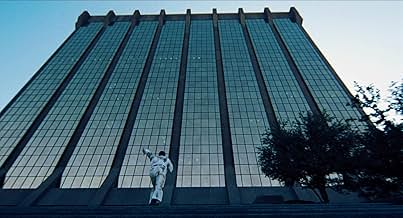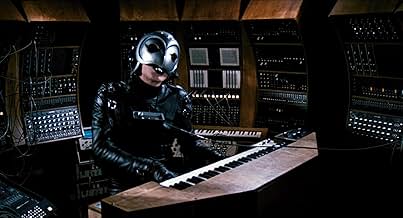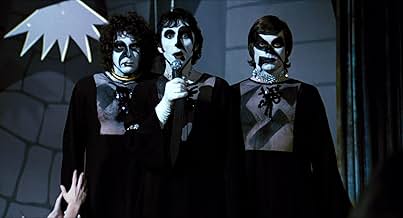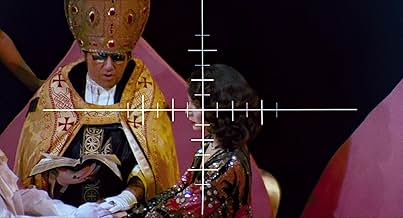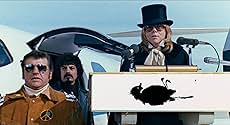Winslow Leach, compositeur de son état, s'est fait déposséder de sa musique par un producteur sans scrupules. Défiguré en voulant récupérer son œuvre, il hante désormais le Paradise en quête... Tout lireWinslow Leach, compositeur de son état, s'est fait déposséder de sa musique par un producteur sans scrupules. Défiguré en voulant récupérer son œuvre, il hante désormais le Paradise en quête de vengeance et de reconnaissance.Winslow Leach, compositeur de son état, s'est fait déposséder de sa musique par un producteur sans scrupules. Défiguré en voulant récupérer son œuvre, il hante désormais le Paradise en quête de vengeance et de reconnaissance.
- Nommé pour 1 Oscar
- 3 victoires et 5 nominations au total
- The Juicy Fruits
- (as Harold Oblong)
- …
Histoire
Le saviez-vous
- AnecdotesThe record press in which the character Winslow Leach is disfigured was in fact a real pressing plant (it was an injection-molding press at an Ideal Toy Company plant). William Finley was worried about whether the machine would be safe, and the crew assured him it was. The press was fitted with foam pads (which resemble the casting molds in the press) and there were chocks put in the center to stop it from closing completely. However, the machine was powerful enough to crush the chocks that it gradually kept closing. It is commonly believed that Finley pulled his head out of the press just in time to avoid being injured, and that his scream in that scene was genuine, but this is an exaggeration. Finley was quickly pulled out by grips and the record press scene, along with most scenes in the movie with little dialogue, was filmed without sound, and the talking and sound effects were dubbed in later. At a Phantom of the Paradise convention, Finley exaggerated the story and said that his scream was "for real", although he may have meant that he was able to conjure up a very real scream in post-production by thinking back to his memories of the incident.
- GaffesVideotape was still only in the experimental development phase in 1953, when Swan records his suicide note/contract, and at that it was only capable of black and white images. Color, broadcast quality videotape of the kind depicted here was not available until the late 1950s.
- Citations
The Phantom: [to Beef] Never sing my music again. Not here, not anywhere. Do you understand? Never again. My music is for Phoenix. Only she can sing it. Anyone else who tries, dies!
- Crédits fousThe closing credits feature a series of montages of the cast members, identifying each by name, starting with the musical trio (Oblong, Hahn, Comanor) and concluding with William Finley as Winslow/The Phantom. These montages are made up of shots ostensibly from the movie, and most of them are, but there are also numerous outtakes.
- Versions alternativesIn the pre-release (or press) prints of the movie, the scene where Winslow was disfigured by the record press was longer; His disfigured face was briefly seen steaming with smoke from the press, and Winslow then killed the cop that surprised him (and shot him in the leg, which explained why Winslow walked with a limp for most of the film; however, he was able to run with the greatest of ease towards the end). The scene was removed from subsequent versions, as it was best decided that Winslow's disfigured visage be revealed at the end of the film.
- ConnexionsFeatured in Terreur dans la salle (1984)
- Bandes originalesGoodbye, Eddie, Goodbye
Written by Paul Williams
Performed by Jeffrey Comanor, Archie Hahn and Peter Elbling as The Juicy Fruits, lead vocal Archie Hahn
Howard Maxford feels the film is "dated", and that is the best criticism one can make of the film. The songs do not hold one's attention well. The plot in general is decent, but the music -- a central focus of the movie -- is just average.
Brian de Palma, the director of "Carrie" and "Black Dahlia", is in charge here. He makes a visually appealing film, with angles and colors that call to mind Stanley Kubrick's "2001" and "A Clockwork Orange", as well as Dario Argento's "Suspiria" (which star Jessica Harper would appear in after this film).
Gerrit Graham ("TerrorVision") as Beef is great, and a nice send-up of glam rock. The critics had called the film "funny" and "hilarious", but both are exaggerations. The humor is very subtle, with this being a musical first, horror film second and comedy third.
The references to Dorian Gray are awesome, and unspoken. There are also cues from Poe and previous "Phantom" films. Some have said there is even an homage to Orson Welles' "Touch of Evil" (and I believe them, but I have not seen the film yet). Sissy Spacek is credited as a "set dresser"... you decide what that means.
Meilleurs choix
- How long is Phantom of the Paradise?Alimenté par Alexa
Détails
- Date de sortie
- Pays d’origine
- Langue
- Aussi connu sous le nom de
- Le Fantôme du Paradis
- Lieux de tournage
- Sociétés de production
- Voir plus de crédits d'entreprise sur IMDbPro
Box-office
- Budget
- 1 300 000 $US (estimé)
- Montant brut mondial
- 2 245 $US
- Durée1 heure 31 minutes
- Couleur
- Rapport de forme
- 1.85 : 1
Contribuer à cette page



